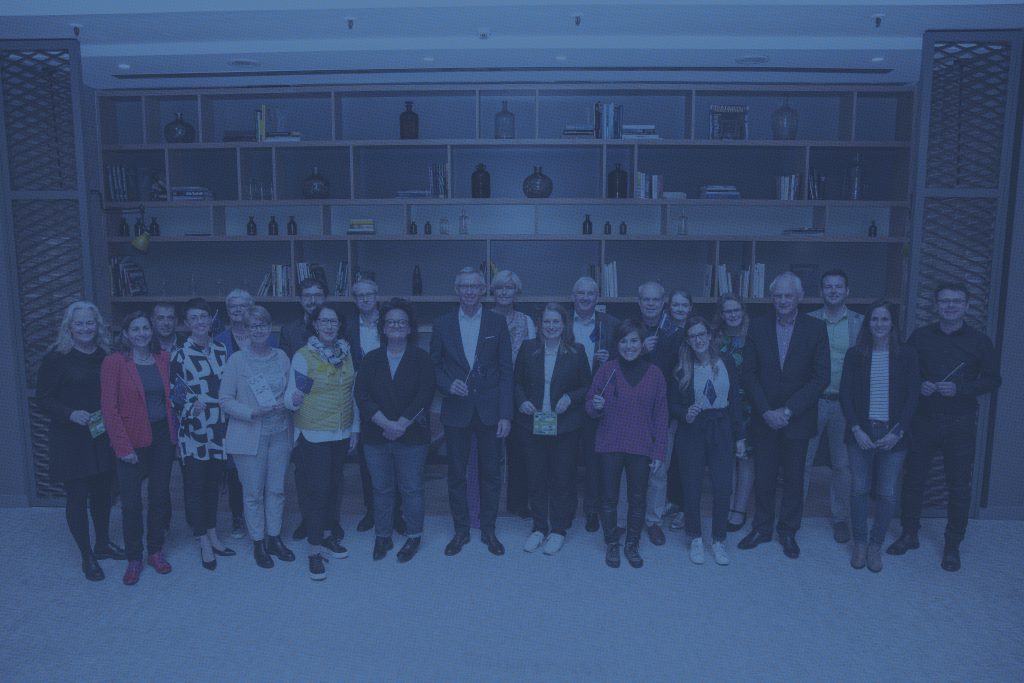
EUROTOWNS - The network of medium-sized cities in Europe
European network – big enough to cope, small enough to care!
We are celebrating 30 years of European cooperation of medium-sized cities this year
and we proudly present our new explanation movie of the Eurotowns network.
City networking – and the important practice with the European network
Eurotowns was established in 1991 as the Europe-wide network for towns and cities with populations between 50.000 and 250.000. Towns and cities of this size play a significant role in the economic and social life of Europe. The Eurotowns network aims to ensure that this fact is properly reflected in the development of European legislation and promotes the interests of medium-sized cities at European level. Currently, the network consists of 19 member cities, located in eight member states of the EU.
City networking is an important practice for reinforcing European Cohesion. In addition to being an area of cooperation between communities, participation in such networks enables representation of local government in Europe. It also provides a privilege framework for promoting innovation and exchanging experiences at transnational level.
Eurotowns supports medium-sized cities in Europe to strengthen their role as attractive, inclusive and sustainable places. Furthermore, Eurotowns provides a valuable mechanism for building reliable partnerships, developing innovative and sustainable projects, and effective collaboration on European Union funding applications.
The network structure facilitates productive and mutually beneficial activities focusing on different priorities through thematic Task Teams.
Eurotowns – the origins and our mission
In 1991 the network was founded as an European network for cities with a population between 50,000 and 250,000.
In the meantime, Eurotowns already has 20 cities as members.
Cities of this size play an important role in the economic and social life of Europe. The Eurotowns network ensures that this fact is properly taken into account in the development of European legislation.
Our mission – Eurotowns is building a large network of medium-sized cities.
The Mission of Eurotowns is to develop a network of vibrant, socially inclusive and sustainable medium-sized European cities, which acts as a catalyst for urban Innovation, creativity and renewal.
Eurotown’s policy agenda focuses on the following areas:
– The promotion of lifelong learning and the development of education and skills
– Expanding the knowledge economy and creating better local jobs.
– The provision of effective, efficient and sustainable transportation places
– Assuring socially inclusive growth
– Improving the quality of the physical environment
Eurotowns – Innovation of the networks of medium-sized cities in Europe
At Eurotowns we address the following main topics:
– Urban challenges and the quadruple helix approach:
This new model in entrepreneurship gives local authorities the opportunity to implement actions with economic impact in your area.
– Municipal collaboration with technology centers:
With the necessary links to research and technology institutions, they have the opportunity to build a better connected ecosystem and thus build a more stable competitiveness.
– Smart specialization at the local level:
Here we can contribute about our experience in the development of the Sabadell project. In this project, the special and territorial competitiveness (PECT) was increased. Here, the regionalte management and tools were built at a local level for the implementation of RIS3. In addition, we are currently leading the Interreg Europe project RELOS3, which is about the exchange of different perspectives and/or ways to implement regional smart specialization strategies at a local level.
– (Industrial) Circular Economy, Symbiosis:
This is a new type of economy where we consume in moderation, products have longer life spans, limit waste, and are able to convert waste into new resources.
This, of course, has implications for economic recovery, increasing competitiveness, creating jobs and reducing environmental risks.
– Innovative Public Procurement:
Public procurement of goods, services, and works provides municipalities with an important lever to improve and promote sustainability at the local level. In addition, better governance of public procurement and the implementation of effective metrics systems for public spending and its impact could also make an important contribution.
– Proceedings on digitalization in public administration:
Embarking on digital transformation will have an undeniable impact on the way services are delivered at the local level and how communication takes place between citizens and local government.
